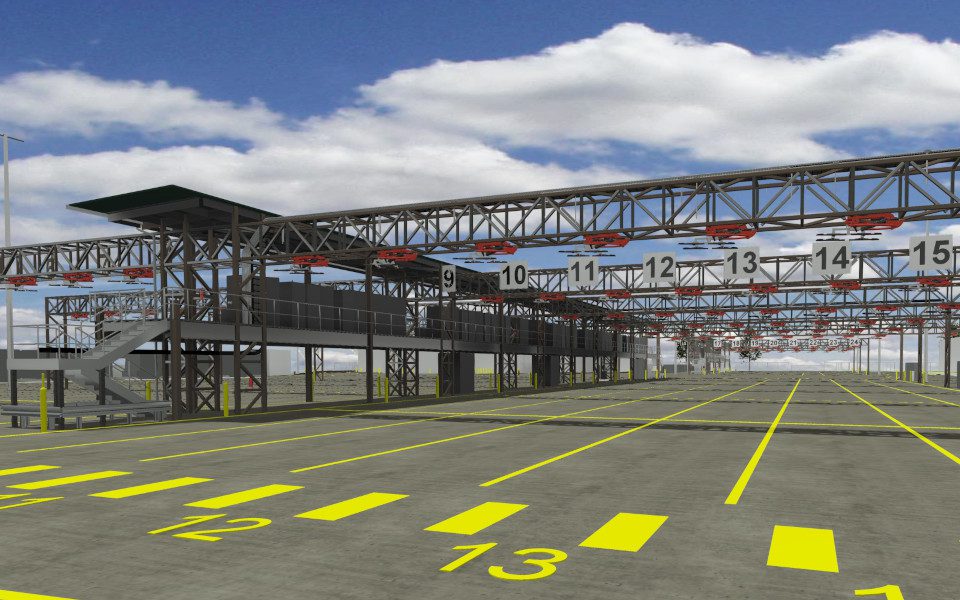TriMet Powell Garage Electrification and BEB Installation
TriMet’s Powell Base is being transformed to improve bus and employee circulation, boost safety at key access points, modernize outdated facilities, and prepare for a 50% increase in bus capacity. Lund Opsahl designed the first battery electric bus (BEB) charging infrastructure at the base. Our work includes designing the electrical power infrastructure, charging pantographs, and charge management systems, as well as foundations and anchorage for on-grade equipment and the gantry structure supporting overhead chargers—carefully coordinating the foundations with underground utilities.
Innovating the Lateral System
The steel trusses supporting the charging systems feature a bold design: cantilevered 40 feet on one end, spanning half the distance a full truss typically would. Each truss is separated from the next bay to handle the steel’s natural expansion and contraction over long distances due to temperature shifts. This configuration requires each trussed tower to handle the full lateral load of a truss. While this demands stronger steel and larger foundations, the system offers nearly infinite expandability. Atmospheric icing also played a critical role in our design, with the trusses engineered to bear the extra weight.
Multi-Phased Project, 24/7 Facility
This ambitious, multi-phase project is currently in Phase 2, which was developed as a trial run with Phase 3 in mind. Upon completion, the base will support a fleet of 286 electric buses, ready to drive TriMet into a more sustainable future.

Our Electrification Expertise
The TriMet Powell electrification initiative is one of many projects we are working on to shepherd the next era of sustainable transportation. As partners in this electrification journey, we are excited to set a precedent for how transit agencies will approach new projects in this energy transition. See how we developed our electrification design concepts for King County Metro’s Interim Base Electrification. Learn more.



